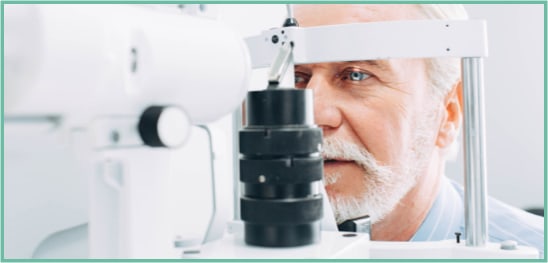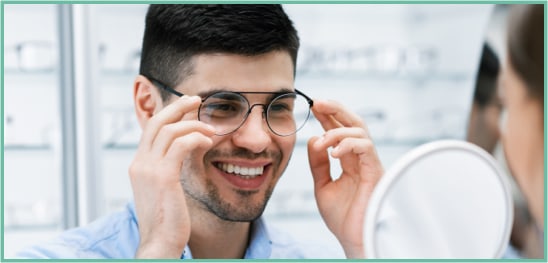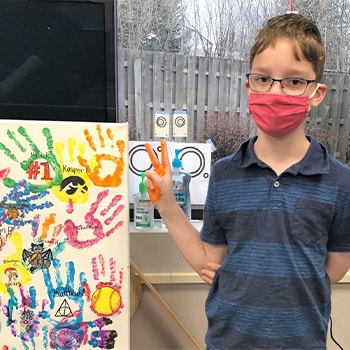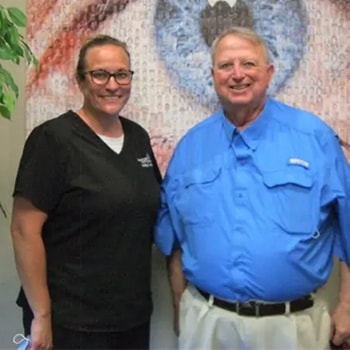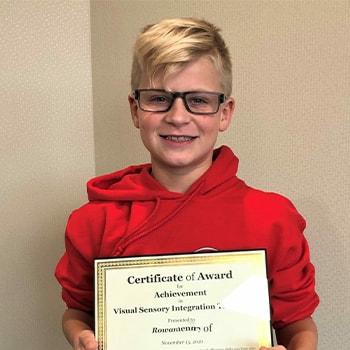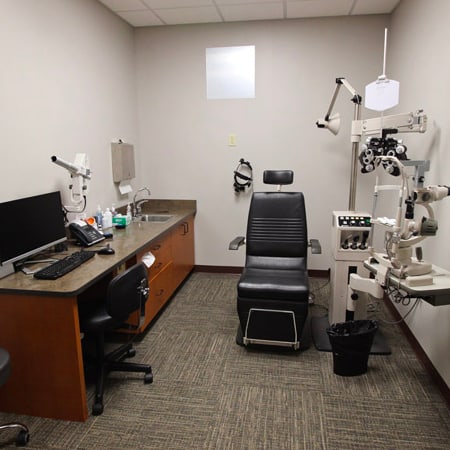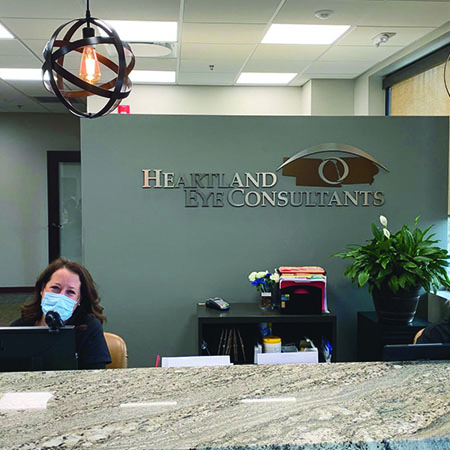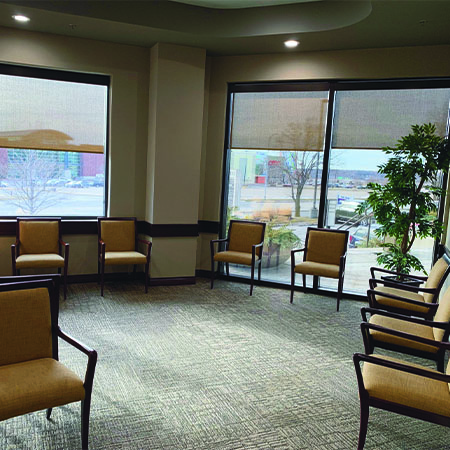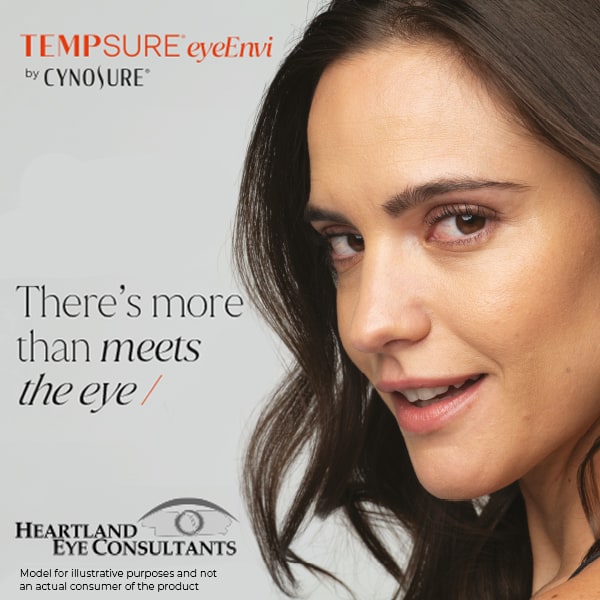Whether they’re from seasonal allergies or they’re a chronic condition, dry eyes can be miserable. Dry eye disease is a common condition and some optometrists offer services dedicated to dry eye therapy.
Common symptoms of dry eye include red, irritated, and watery eyes. One less common symptom that some people get is floaters. While it’s easy to assume dry eyes were the cause of the floaters, there is no evidence linking floaters to dry eye.
Let’s look at what dry eyes and floaters are and a common link they have.
What Is Dry Eye?
Several things can lead to dry eyes, including dry air, smoke, allergies, medication, age, or meibomian gland dysfunction (MGD). Ultimately the 2 most common subtypes of dry eye are either inadequate tear production or the premature evaporation of your tears.
Suppose you’ve ever dealt with the uncomfortable symptoms of dry eye. In that case, you know how it can disrupt your daily life. Visit your eye doctor if you experience dry eye symptoms.
What Are Floaters?
One thing that could add to the visual disruption that may accompany dry eyes is the addition of floaters. These black spots and squiggles don’t normally cause a lot of problems but they are the natural aging process of the eye as the vitreous (or gel in our eye) breaks down. But if you’re already having trouble seeing clearly they may interfere more.
The Link Between Dry Eye & Floaters
Other than the fact that they sometimes happen simultaneously, the only thing that appears to connect dry eye and floaters is a risk factor: age. As we get older, dry eye and floaters become more common, and we’re more likely to develop them.
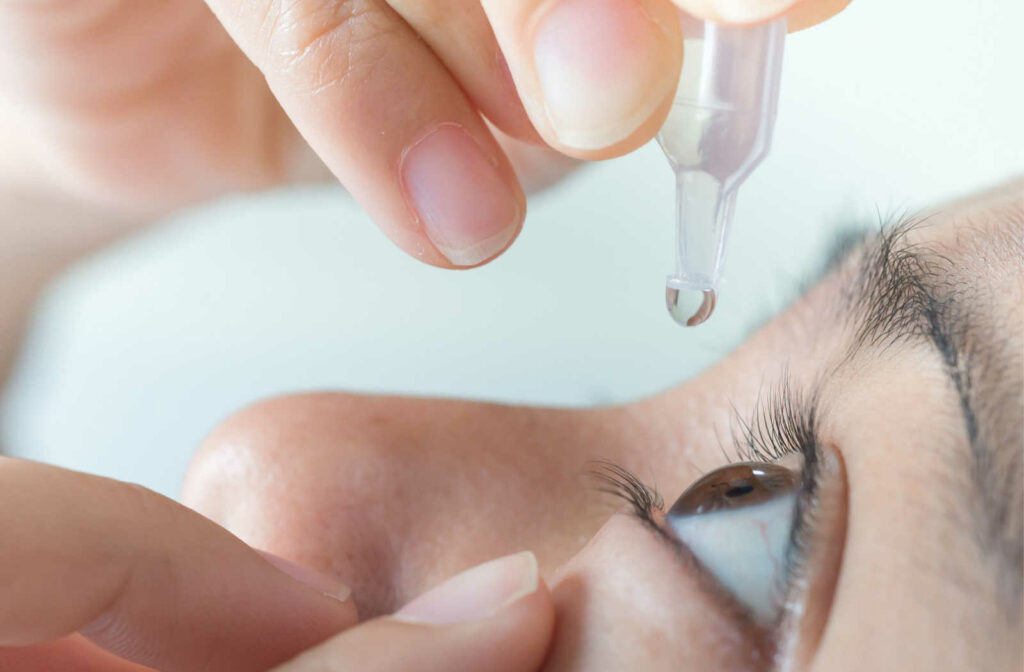
Treating Dry Eye
Narrowing down the cause of your dry eyes is typically the first step to treating it. In many cases, an over-the-counter lubricating eye drop can be enough. But stronger prescription eye drops or other procedures may be needed with more severe dry eye.
Dry eye treatments can include:
- Lubricating eye drops: These are often the first choice for symptom relief and are sometimes used in conjunction with other therapies. Ideally, you want a preservative-free eye drop to avoid causing additional discomfort.
- Prescription medication: Oral and topical medications are available for dry eye treatment. Depending on your situation, your eye doctor may prescribe something that stimulates your body’s tear production, reduces inflammation, or an antibiotic if there’s an infection.
- Intense pulsed light (IPL): If you’re dealing with premature tear evaporation, you may benefit from meibomian gland stimulation and reducing ocular inflammation. IPL therapy can provide effective relief and treatment for dry eye.
- Meibomian gland expression: Using a warm compress, your eye doctor loosens the oils in the glands and expresses it manually. This can help stimulate the gland to function properly on its own. There are also in office therapies that warm and massage the meibomian glands.
Complications from Dry Eye
Discomfort is often the most common symptom and complication from dry eye. But it’s not the only negative impact. Other complications of untreated dry eye include:
- Eye infections: Other than lubrication, our tears’ job is to help protect the eye from infection. So, if you’re not producing enough tears or they’re evaporating too quickly, your eye may be more prone to infection from germs or other contaminants.
- Damage to the eye’s surface: When your tears lubricate your eye properly, everything slides smoothly under your eyelids. But dry eye can damage the eye’s surface when you blink or move your eye without adequate lubrication and can cause blurred vision.
Treating Floaters
Normal floaters may not require treatment unless they cause problems in your daily life. If this is the case, an eye doctor may recommend a vitrectomy. During this procedure, the doctor removes the vitreous fluid causing the floaters from your eye and replaces it so you can see clearly.
If you notice new floaters, a sudden increase in floaters, or flashes of light, you should see your eye doctor for an examination, whether they’re bothering your vision or not. Floaters could be a sign of retinal detachment, which is potentially vision-threatening if left untreated.
Talk to Your Eye Doctor About Your Dry Eyes
If you’re dealing with dry eye, it’s worth making an appointment to have a specialized dry eye doctor examine your eyes. Once they rule out potential diseases or conditions causing the symptoms, they can recommend a treatment. Schedule an appointment at Heartland Eye Consultants to have your dry eye or floaters assessed by a specialized eye doctor. Our professional team is happy to answer your questions and get you in to see one of our optometrists as soon as possible.




